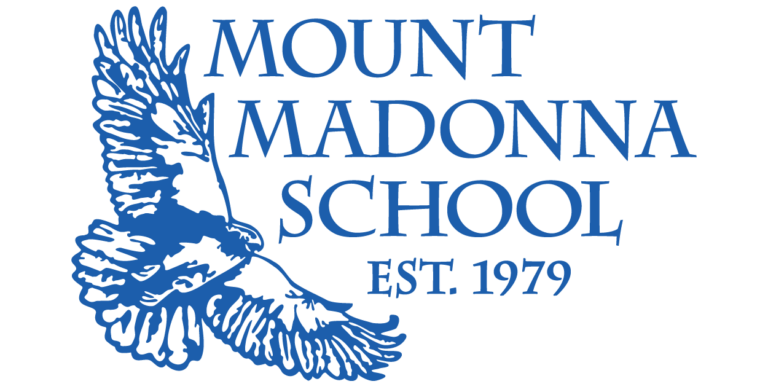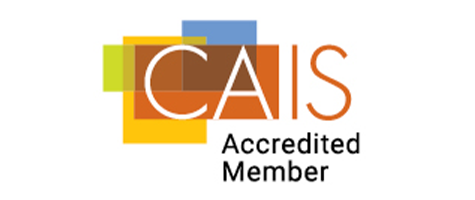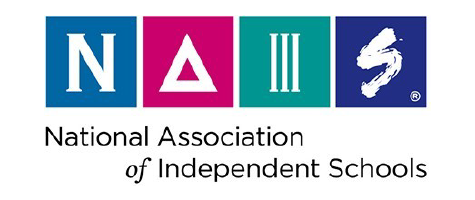 Interview with Sacha Manov (‘04)
Interview with Sacha Manov (‘04)
By Lara Kilpatrick (’85)
I caught up with Sacha Manov (’04) in Santa Cruz this summer as she was taking a break before heading off to graduate school at Columbia University. Sacha offered a vivacious and insightful view into her recent stint in west and southern Africa with the Peace Corps.
After graduating from MMS in 2004, Sacha studied International Studies at Vassar College in New York. At Vassar, Sacha shares that she benefitted from the small class sizes and cross-disciplinary courses in international political science, economics, geography, and sociology. She developed a fascination with academic research and its application to public service, culminating in a thesis analyzing ties of colonization and foreign aid policies. In her junior year, she began thinking about what to do after graduating. Peace Corps was “this thing online” and she didn’t know much about it, nor did she know anyone who had volunteered. It was terrifying to consider applying to be a Peace Corps volunteer – it felt like “jumping off a cliff” – but she told herself to “just do it, don’t think too much about it because you’ll scare yourself off.” It was one and a half years between the time of her application and the time she left on assignment. After a competitive application process stressing technical skills, motivation, adaptability, and cross-cultural understanding, Peace Corps invited Alexandra “Sacha” Manov to serve as a Public Health Volunteer in the west African country of Guinea. Sacha said, “I cried when I received my assignment letter; I was so overwhelmed and had been preparing for so long!”
When she submitted her application, she found that all the choices of location were interesting, so she didn’t ask for any particular geographical area. She wanted to go to a ’least developed‘ country in order to more fully experience a different culture. “I’ll go where the wind takes me,” was her attitude. When she was notified she was headed to Guinea in west Africa, she had to look it up on a map!
“I arrived with very little French and no knowledge of the local language,” says Sacha. “I was forced to learn as quickly as possible.” She studied French for the first few months every day, alongside the technical training. After learning about the topics she was to teach in Guinea, she practiced making presentations with classmates. She gathered friends to watch her present the lessons in order to overcome the scariness of speaking in French and doing this type of speech. On February 6, 2009, Sacha completed training in Guinea and was sworn in as a Peace Corps Volunteer. She was assigned to Kobala, a village in the northeast part of Guinea, 25 kilometers from Dinguiraye and approximately 600 kilometers from the capital, Conakry. The village provided her with her own hut.
Peace Corps support is structured such that villages must request the Peace Corps to send a volunteer and then the village supplies housing for the volunteer. Each volunteer is then partnered with a local counterpart. In Guinea, Sacha worked with a local doctor – who was very nice, though not very knowledgeable about the topics she was there to teach. The Peace Corps stresses the importance of each volunteer becoming a part of her/his local community. In the 3 months following her training, Sacha was encouraged not to do any “work” but to get to know the people of the village, so she made a point of being present in village activities and inviting herself to visit with members of the village.
Peace Corps volunteers are given enormous liberty to decide how to deliver the messages they have been assigned to share with their local populations. This is a challenging aspect of serving in the Peace Corps anywhere – once the training is complete, there is so much freedom to choose how and what to share. At first Sacha asked herself, “Where do I even begin?!”
She gave ‘ sensibilizations’, demonstrations or presentations using large flip-charts – very basic, drawing pictures using markers – focusing on malarial prevention and control, diarrheal disease control, nutrition and malnutrition, reproductive health (i.e. family planning, HIV/AIDS and STI prevention, prenatal care) and complete vaccination coverage. Sacha found that one of the best forums was the local marketplace. Markets were held on Thursdays and she would go, gather people around her, and offer her sensibilizations to whoever would stop and listen.
In her village, Sacha worked with youth peer educators to give educational talks on malaria. She participated in training sessions with the village doctor focusing on capacity building and organization of volunteer and community members’ collaborative activities. She taught classes on nutrition, trained local volunteers in proper distribution of vaccines and vitamin A for the national polio vaccination campaign, and implemented a more accurate system for vaccination and prenatal care record keeping. She gave informal talks to women who came in for pre-natal check-ups on proper breastfeeding techniques and the importance of vaccinating their babies.
In addition to her primary project activities, Sacha also directed her energies on youth development and girls’ empowerment. She planned and facilitated two weeklong girls’ empowerment camps of twelve girls each in two villages, collaborating with another volunteer. Together, they led sessions on nutrition, malaria, diarrhea, pregnancy, sexual education and anatomy, methods of contraception, sexually transmitted diseases, image, beauty ideals, the dangers of skin-bleaching creams, female circumcision, the importance of staying in school, and planning for the future as women professionals. In addition, she organized lunch for the girls each day with different sources of protein and explanations of the meals’ nutrition value and a participatory cooking demonstration using moringa. She led interactive games and songs, a talk with a female professional who served as an example and inspiration for the girls, informal oral quizzes at the end of each session, and the creation of daily educational skits on what the girls had learned, culminating in a theater piece performed for community members.
Sacha also accompanied two local 14-year-old girls to the 2009 annual Girls Conference in Middle Guinea, attended by 30 local girls chosen by Peace Corps volunteers in their respective villages. In addition to be a part of all activities of the four-day conference – which focused on the importance of education, health issues, and professional opportunities and included collaboration with local NGOs and professional women – Sacha facilitated a session on image, beauty ideals, and the dangers of skin-bleaching creams.
Another fun learning activity was a world map project, where Sacha and local youth painted and labeled a large, colorful world map outside the primary school while explaining and making games out of basic geography. Sacha was also involved with securing funding for the construction of a youth center. She met with community members and the youth association and collaborated closely with its president to facilitate meetings with engineers, create a budget and timeline, and organize and motivate community members to be voluntary unskilled laborers on the project. She raised support and pledges for donations from numerous potential donors in the United States. Finally, she completed an extensive application for the funding of a youth center through the Peace Corps Partnership Program.
Throughout her time in Kobala, Sacha taught basic English lessons to 20 motivated high school students five days a week, including present, past and future tenses, vocabulary, conversational practice, and interactive songs and games.
Sacha coped with being in a strange place, so far away from friends and family by creating an agenda each day. For example, she scheduled 2 hours to spend time with a friend in the village, then read for an hour, then 2 hours to spend with another person, then went home and painted the walls of her hut for fun and to relax. Over a four-month period, she painted a mural of village life on the inside wall of her round hut. Filling each day with routine made the vast unknown and unchartered time and place more bearable early on. During the two-month training, she became a part of a close community comprised of Peace Corps volunteers. These friends came to be very important to Sacha through the two and a half years of her service in Africa. Weekly phone calls with her mom were also very important. There was no cell phone signal in the village (everyone had cell phones, even if they only used them to play games!), but she could find a signal by walking up a nearby hill.
Due to civil unrest, the Peace Corps temporarily closed its operations in Guinea and in November 2009, Sacha transferred her service to Botswana to be a HIV/AIDS volunteer. She was assigned to Tumasera in the central district of Botswana, 60 kilometers from Palapye and 400 kilometers from the capital, Gaborone.
In Tumasera, Sacha worked at the village health center where she provided support and care for people living with HIV/AIDS. She organized a survey system for caretakers of children on welfare to determine a main caretaker. She created a registration system for a couples HIV/AIDS testing event. In addition, she helped health education assistants to distribute food and weigh babies and keep records of information about malnutrition statistics. She taught a counselor and two health education assistants the basics of using Microsoft Word. She assisted the clinic staff in planning a women’s soccer tournament that included counseling on safe infant formula feeding practices at each soccer practice and a quiz as part of each team’s score.
As a Peace Corps volunteer in Botswana, Sacha also served with the United States Agency for International Development (USAID). She worked with non-governmental organizations (NGOs) receiving funding from USAID to develop and strengthen the small organizations’ year-long work plans. She conducted site visits to local NGOs to explain USAID’s measurements for project success and to help the organizations with their monitoring and evaluation methods. She created a database on United States government-supported community-based organizations in Botswana. She helped the USAID staff to compile their analyses and scoring of several candidates for four positions available at USAID, and subsequently sat in on the interviews. Sacha wrote a paper comparing the Global Health Initiative goals with statistics in Botswana (goals include maternal health, HIV/AIDS, TB, nutrition) and completed an online USAID course in HIV/AIDS basics.
In addition to the primary projects, Sacha had opportunities, as in Guinea, to take on projects more closely related to some of her own interests that coincided with the needs of her village. She became involved with the local Selelo Youth Club, where she taught about capacity building, fund-raising, and project ideas. She instructed club members on presentation skills, and created a lecture on alcohol abuse and multiple concurrent sexual partnerships, which the group then presented at a local clinic. She assisted the youth club in preparing an educational skit for World AIDS Day on stigma, discrimination and traditional medicine. She also helped the youth group to plan a talk for 300 secondary school students on “Life After Secondary School.” And she supported the group in hosting a couples testing movie night with a skit on prevention of HIV. She planned an “Orphans and Vulnerable Children Independence Day Celebration” with the Selelo Youth Group and Village Development Committee to celebrate and benefit orphans and vulnerable children with food, games, face-painting, songs, dance and drama.
Sacha also assisted a small student group in writing a grant to help their catering business and trained one teacher in how to set up an effective Peer Approach to Counseling Teens (PACT) club. She organized a library project by finding an old building that could be reconstructed and putting together a library committee. She taught a weekly course in two primary schools with topics that included basic theory of life skills, self-awareness, and values. All these experiences taught Sacha how important it is for policy and projects to make sense for each specific community, with emphasis on sustainability and input by country nationals.
Sacha learned that the HIV/AIDS discussion had grown “old and stale” for the local population and so she focused on new and different ways of teaching about this important topic. She met with the Village Development Committee to organize a Youth AIDS Day; and helped organize a Family Fun Day/Couples Testing event featuring face painting, a bouncy castle, tents and a DJ sound system. She helped the Village Development Committee plan their World AIDS Day event; and also organized soccer coaches to have their teams tested when they came to Tumasera for games and tournaments.
Although she spent more time in Botswana, for Sacha her short eleven months in Guinea were really the highlight of her two and a half years with the Peace Corps. She experienced vast differences between the capital cities of Conakry and Gaborone. There were quite wealthy parts in Gaborone and in Botswana in general. During breaks from work, she sometimes house-sat for wealthy people and she felt like she was in a different place altogether. She was astonished at how much the Botswana government does for its citizens with social welfare programs and healthcare, and she gained a better understanding of how much a country’s development, sustainability and good governance can make a difference in the lives of its people. In Guinea, there were some wealthy people whose homes gave the impression of prosperity and modernity – but then the water would go out and reality would come back. Sacha shared, “It wasn’t about material wealth in Guinea. It was very rich in culture and the people were so easy to make friends with – so welcoming and open. I made great friends in my village.”
During her stint in the Peace Corps, Sacha became personally invested in her role as development and health worker in her villages. The Peace Corps taught her the great power of leading projects and planning events in another language and culture in collaboration with the host country nationals. The positive reception she received from audiences of her ‘ sensibilizations’ was gratifying, but witnessing the incremental behavior change as a result of her work was even more rewarding. Her experiences further fired her passion for development work and a strong desire to pursue further study in international development.
Sacha completed her Peace Corps service in Botswana on June 17, 2011.
What inspired Sacha to serve with the Peace Corps? Throughout high school and college, she worked with many local non-profits, including the Santa Cruz Aids Project, a homeless shelter, Habitat for Humanity, and others. In addition to other international travels, she journeyed to India with her mom in February of her senior year at MMS. Also in junior and senior years, she traveled to New York and Washington, DC with the Values in American/World Thought program. Through the Values course at MMS, Sacha met representatives from Vital Voices (now Vital Voices Global Partnership), whose mission is “to identify, invest in and bring visibility to extraordinary women around the world by unleashing their leadership potential to transform lives and accelerate peace and prosperity in their communities.” Sacha served as an intern with Vital Voices for two summers during college and this helped to inform her education and career goals.
When Sacha contemplated joining the Peace Corps in her junior year of college, it greatly intrigued and scared her. This decision has become symbolic for how she wishes to live her life: “Don’t play it safe. Do the craziest thing you really want to do. Finding my focus, this is the hardest thing for me, finding what I want. If you think you have a glimpse of it, but it seems scary, just go in that direction and do it.”
Other cultures are important to Sacha. She finds deep excitement in learning about and being a part of cultures that are different from western society. She plans to get her Master of International Affairs (MIA) at Columbia’s School of International and Public Affairs, where there is political and economic focus but also an emphasis on the social aspects. She wants to take a broader approach to international development, coming at it less through strictly economic policy and more through social aspects such as women and girls’ empowerment, small-scale income generating activities, and public health improvements. Sacha’s closest friend in Guinea lost her two-year old son to dehydration complications, and she was deeply affected by this loss. She saw how easily preventable this death was, and how differently this would have been handled in a more developed country with better healthcare.
Eventually, Sacha’s goal is to work with a midsize international NGO focused on international development. After earning her degree, she would like to serve at the management level with an organization involved in poverty alleviation, among other emphases.
One thing Sacha noticed in her work in Africa was that organizations that are too large tend to lose their connection with the local projects. They give money and some direction, but the resources to carry out the projects are inadequate. For example, her last eight months of work in Botswana as a Peace Corps volunteer with USAID showed how issues related to communication (lack of or miscommunication), truthfulness (or lack of), and accountability (lack of self-) arose through the disconnect between the large institution and the small NGOs receiving funds. This emphasized to Sacha the need to work more closely with project teams and take an on-the-ground approach. She also foresees being a part of an organization that centers on action and producing concrete results over theories and jargon.
Sacha credits MMS with emphasizing a strong work ethic and showing how working hard yields results. Also, MMS gave Sacha a “cultural sensitivity,” an ability to be okay with “the weirdness.” For example, at MMS one gets used to dressing up as a monkey and being okay with that!
The Values class taught Sacha how to value philosophic thought and not just live in your surroundings – the importance of moving and being moved. Ward Mailliard (SN) was influential in Sacha’s life in how he was “hard” on her – in a good way! Through Values class studies, she met people who’ve done great things and showed her that this is attainable to anyone who works hard and takes on responsibilities.
Sacha’s other passion is dance. She credits Sampad Kachuck and the MMS Performing Arts program for building confidence and leadership within herself. She was given the opportunity to choreograph dances in the plays and this showed her the value in creating and carrying out something of one’s own. Her involvement in performing arts showed her the deep intrinsic value of her own creative self-expression. At Vassar, she participated in student-run and college-run dance programs. She hopes to continue dancing at Columbia, if her schedule allows.
Offering a few words of wisdom for MMS students and fellow alumni: “Follow your passion – go where your heart takes you.” She recommends the Peace Corps for those individuals who are self-sufficient, adapt easily to strange situations, are flexible and easily make friends. “Don’t think about what you ‘should’ do but find what excites you. If you want to do something and it scares you, do it!”



